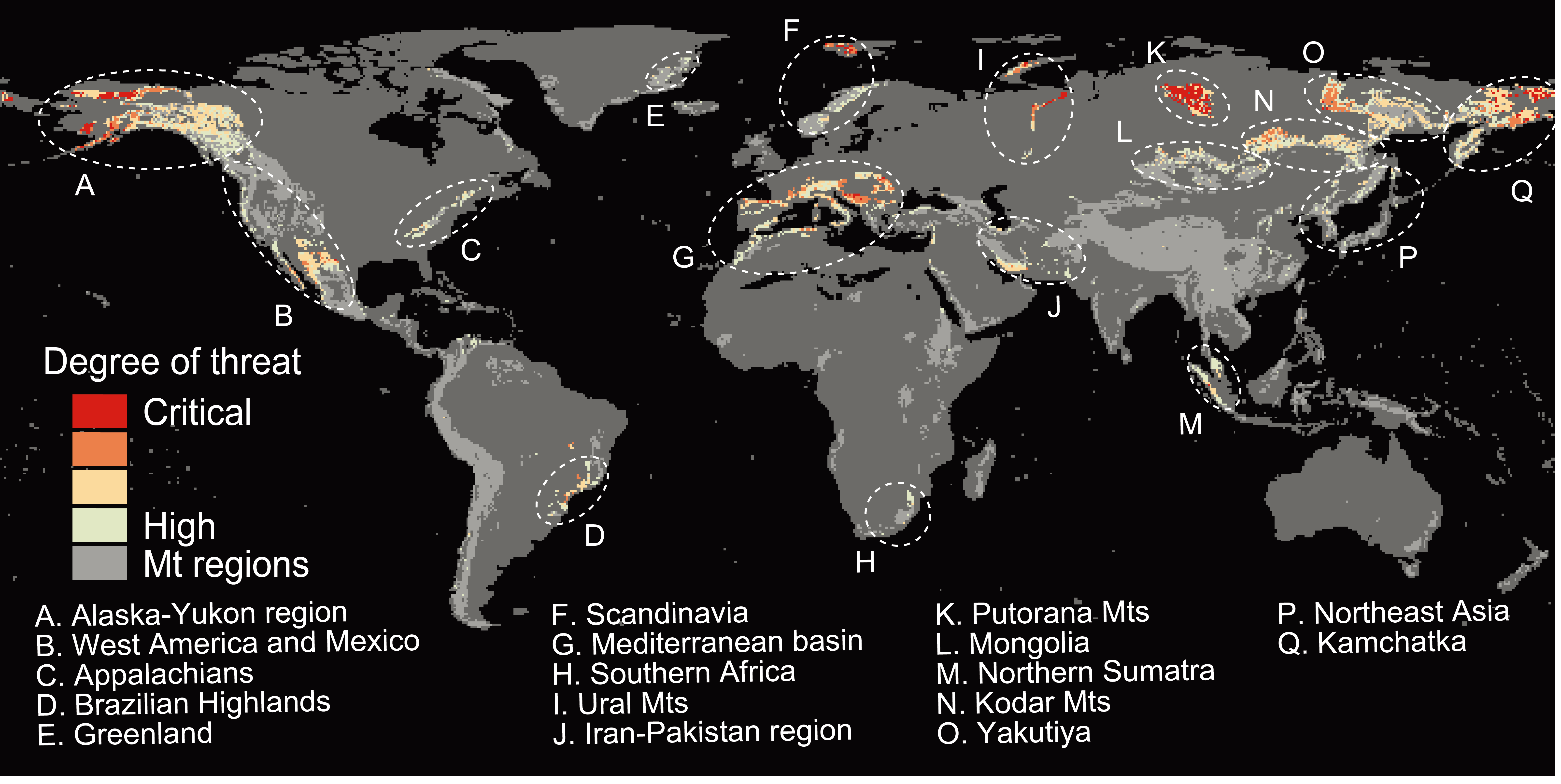
Discovery: Severe Warming Found in 17 Mountain Regions Worldwide. Interdisciplinary Research from Academia Sinica Published in the Journal Nature
As climate change pressures intensify around the world, mountain regions, rich in biodiversity, are facing unprecedented environmental challenges. A new study, soon to be published in Nature, opens a new chapter on this crucial issue, revealing the immense pressure mountain ecosystems are under due to global warming.
The study, " Climate velocities and species tracking in global mountain regions," was conducted by an international team led by Sheng-Feng Shen, a research fellow of the Biodiversity Research Center at Academia Sinica in Taiwan. The team includes researchers from National Cheng Kung University, National Taiwan University, and France. The research examines the complex relationship between the rate of isotherm shift and biological responses in global mountain regions.
The lack of long-term meteorological observation stations in mountain regions worldwide has long made quantifying climate change in these areas a major challenge. Using a thermodynamic principle, the study maps the vertical migration of isotherms with unprecedented precision. The results are alarming: in seventeen mountain ranges, from the arid areas of Alaska-Yukon to the highlands of northern Sumatra, isotherms are rising at rates exceeding 11.67 meters per year - a rate far exceeding previous estimates and posing a significant threat to the unique species of these high-altitude ecological refuges.
The study also highlights a significant difference between arid and humid mountain regions. In arid areas, where the air contains less moisture, temperature bands rise more rapidly, largely due to the lower heat retention capacity of these dry areas. In contrast, in humid regions, the effect of moisture causes temperature bands to rise more slowly, but the impact on local biodiversity remains a concern.
This groundbreaking study is not only an academic exploration of climate dynamics, but also a clear call to action to develop protective measures for those areas most at risk from rapid climate change. The study provides the data needed to develop strategic interventions to mitigate the impacts on these biodiversity hotspots.
Given the multiple challenges posed by climate change, the findings of this study underscore the urgent need for proactive conservation efforts. The future of the world's mountain ecosystems hangs in the balance, and depends on the collective efforts spurred by such groundbreaking research. In the pages of Nature, a blueprint for action awaits to guide the global community toward a more sustainable coexistence with our planet's magnificent natural landscapes.

Graphic: Temperature contours in 17 mountain regions around the world are rising at a rate of more than 11.67 meters per year, study finds
Link to paper: https://www.nature.com/articles/s41586-024-07264-9





